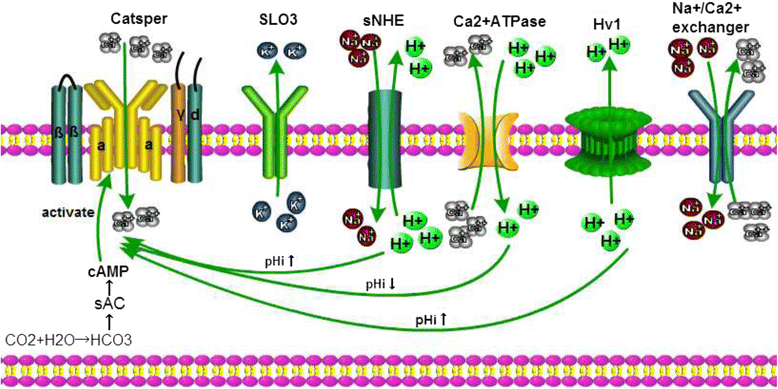Deciphering CatSper’s Role in Male Infertility: A Breakthrough in Reproductive Health

Unveiling the Mystery Behind Male Infertility
In a groundbreaking study, a team of researchers from the University of Munster, Germany, has uncovered a hidden cause of male infertility. They identified a channel in sperm called ‘CatSper’, responsible for controlling calcium levels. Genetic variations causing CatSper malfunction were pinpointed as a reason for unexplained male infertility, affecting about one in a hundred men, even if their semen seemed normal.
The Importance of CatSper in Fertilization
Calcium is crucial for sperm function, especially for breaking through the egg’s protective layer during fertilization. CatSper manages this process in sperm. When CatSper doesn’t work properly, sperm can’t penetrate the egg, leading to infertility. This discovery is significant, explaining male infertility cases where sperm count, movement, and shape seem normal.
Impact on Fertility Treatments
Interestingly, CatSper-related infertility also affects assisted reproduction methods like intrauterine insemination and in-vitro fertilization. This means couples facing this issue may struggle with fertility treatments. But, it also opens doors for better treatment strategies, offering hope to affected couples.
A New Test for CatSper Issues
Researchers at the University of Munster developed a new test to detect CatSper problems in men. This test provides a clear diagnosis, helping doctors choose the best treatment options for higher success rates. With this tool, diagnosing and treating infertility can be greatly improved.
CatSper and Environmental Influences
The study also looked at environmental factors like exposure to phthalates, chemicals that disrupt hormones. Another study linked high phthalate levels, especially DEHP, to reduced sperm movement, a key fertility factor. This shows the need for more research on how environmental factors affect CatSper function and male infertility.
What’s Next?
This study is a big step in understanding male infertility. Researchers plan to explore other proteins’ roles in male infertility, aiming for better diagnostic tools and treatments. With each discovery, we get closer to helping every couple fulfill their dream of having children.

